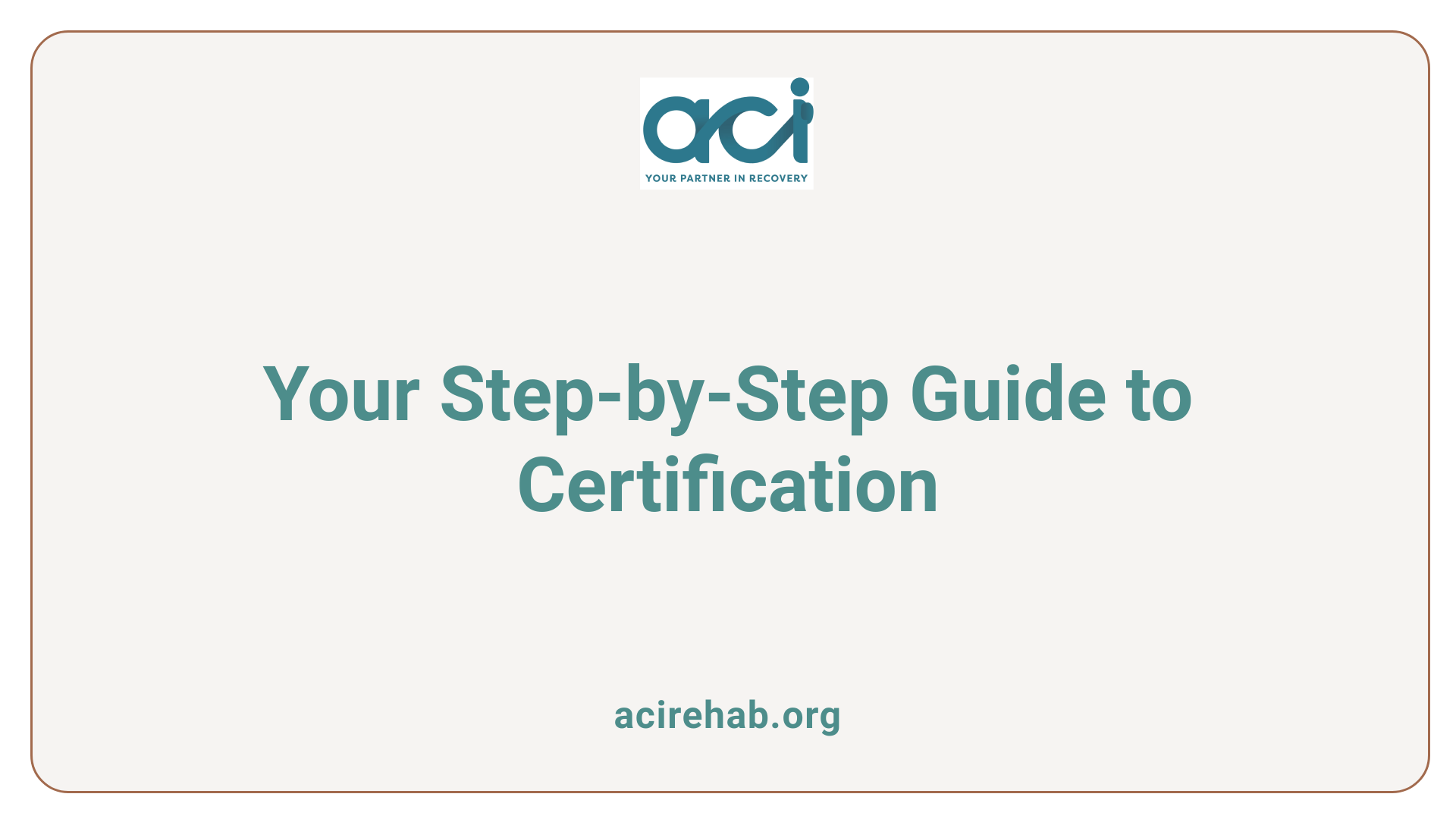Unveiling the Roadmap
The field of addiction counseling is crucial to addressing the growing issue of substance use disorders across the globe. With an increasing demand for qualified professionals, becoming an addiction counselor offers not only a stable career path but also an opportunity to make a profound impact on individuals and communities. This article provides a comprehensive guide on how to become an addiction counselor, covering educational requirements, certification processes, and essential skills needed for success.
The Educational Foundation for Aspiring Addiction Counselors
Why is a bachelor’s degree recommended for addiction counselors?
A bachelor’s degree serves as the essential building block for anyone pursuing a career in addiction counseling. Most states stipulate that aspiring counselors complete a degree in fields like substance abuse counseling, psychology, or social work to begin their journey. This educational foundation equips them not only with theoretical knowledge but also with critical skills such as empathy, active listening, and communication—vital for effectively supporting clients battling addiction.
Moreover, gaining foundational knowledge through a bachelor’s program provides insights into mental health and addiction concepts, which are crucial for both client interactions and treatment efficacy.
How does advanced education impact career prospects?
Advanced education significantly enhances career prospects for addiction counselors. Pursuing a master’s degree, especially one in Substance Abuse Counseling, broadens knowledge and skills, making candidates more competitive in the job market. Those with master’s degrees show increased earning potential; for example, median earnings can rise to approximately $56,230 annually.
Furthermore, the job outlook for substance abuse counselors is robust, with growth estimated at 18% from 2022 to 2032. This growth is largely attributed to rising addiction rates, including the opioid epidemic. Obtaining advanced credentials can lead to more specialized roles, such as licensed independent counselors, further expanding career opportunities.
In essence, both foundational education and ongoing learning through certifications and advanced degrees critically shape a successful career in addiction counseling.
Steps to Certification: Becoming a Drug Addiction Counselor

Necessary Education and Exams
To embark on a career as a certified drug addiction counselor, prospective candidates typically start by earning a bachelor’s degree in counseling, psychology, substance abuse, or a related field. This educational foundation is crucial for acquiring the knowledge and skills required in the profession.
After obtaining a degree, you will need to pass a certification exam. One common examination is the IC&RC Alcohol and Drug Counselor Examination, which is often required for licensure. Additionally, the completion of approximately 415 academic hours of specialized training and a set number of practicum hours is essential.
Role of National Certification Organizations
Organizations such as the National Association for Alcoholism and Drug Abuse Counselors (NAADAC) play a pivotal role in certifying addiction counselors. They offer various certifications, including the National Certified Addiction Counselor (NCAC) and the Master Addiction Counselor (MAC) credentials. These certifications require not only passing an exam but also completing a significant amount of counseling experience—upwards of 4,000 to 6,000 hours.
In summary, becoming a certified drug addiction counselor involves a combination of educational attainment, examination success, and practical experience, with the credentials obtained through recognized national organizations enhancing your professional standing and career prospects.
Time Commitment: Journey to Becoming a Substance Abuse Counselor
How Long Does It Take to Become a Substance Abuse Counselor?
The journey to becoming a substance abuse counselor can vary significantly based on educational and certification requirements set by each state. Generally, the process includes completing a minimum of 415 academic hours of specialized training, in addition to supervised practicum hours. This path often starts with earning a bachelor’s degree in a related field, such as psychology, social work, or counseling.
For individuals aiming to specialize further, obtaining a master’s degree in counseling—specifically with a focus on addiction—can enhance career prospects. This master’s program generally adds two additional years of education, which, combined with undergraduate studies and supervised clinical experience, could total about seven years of commitment.
In some instances, particularly for government positions, candidates may qualify with less formal education. They may only need to complete addiction counseling courses alongside obtaining a high school diploma, which can result in a shorter pathway to entry. Therefore, the complete timeline for becoming a substance abuse counselor usually ranges from a couple of years for expedited programs to seven years or longer for those pursuing extensive qualifications and licensure.
Experience and Supervised Practice Requirements
Aspiring counselors must also gain practical experience, which is critical for licensure. Supervised clinical work typically requires around 1,500 hours, depending on the educational background. Candidates with a bachelor’s degree usually undergo more hours of supervised practice—around 4,000 to 10,000 hours—while those with a master’s may need about 1,000 hours.
As prospective counselors assess their paths, it is important to understand these timelines and requirements as they vary significantly based on state regulations and chosen educational routes.
Financial Aspects: Salary Expectations for Addiction Counselors

What are the salary expectations for an addiction counselor?
The salary expectations for an addiction counselor can vary significantly based on location and experience. According to the U.S. Bureau of Labor Statistics’ 2023 data, the median annual salary for substance abuse counselors is approximately $53,710. For example, salaries can range from a median of $70,860 in Alaska to $58,640 in Arizona, illustrating regional differences in pay.
Factors influencing pay scales
Several factors can influence the pay scales for addiction counselors, including:
- Experience Level: Counselors with more years in the field generally earn higher salaries.
- Education: Those holding advanced degrees or certifications may command better pay.
- Location: Salaries tend to be higher in states or cities with a greater cost of living.
- Types of Employers: Counselors working in hospitals or specialized facilities may earn more than those in non-profit organizations.
The demand for addiction counselors continues to grow, with employment projected to increase by 18.8% through 2033, driven in part by a shift favoring treatment over incarceration for drug-related offenses.
Educational and Certification Requirements

What are the educational and certification requirements for becoming a substance abuse counselor?
To become a successful substance abuse counselor, one typically needs a formal education in a related field such as psychology, social work, or addiction counseling. Most states require candidates to hold a bachelor’s degree, while pursuing a Master of Arts in Counseling can significantly enhance career prospects.
Role of practical experience
Practical experience plays a crucial role in the path to becoming a substance abuse counselor. Many states mandate approximately 1,500 hours of supervised clinical practice, which allows aspiring counselors to hone their skills under the guidance of experienced professionals. Additionally, completing practicums during academic training is essential, ensuring candidates are well-prepared for real-world situations.
National and state-specific requirements
Certification requirements vary by state, emphasizing the importance of understanding local regulations. Nationally recognized certifications, such as those offered by the National Certification Commission for Addiction Professionals (NCC AP), provide tiers of credentials like National Certified Addiction Counselor (NCAC) and Master Addiction Counselor (MAC). Candidates often need to pass standardized exams, such as the IC&RC exam for Alcohol & Drug Counselors, to become licensed. Moreover, continuing education is typically required to maintain certification, ensuring counselors stay current with industry best practices.
| Certification | Required Experience | Exam |
|---|---|---|
| National Certified Addiction Counselor (NCAC) | 6,000 hours of counseling experience | NAADAC exam |
| Master Addiction Counselor (MAC) | 4,000 hours with a master’s degree | IC&RC examination |
| Licensed Alcohol and Drug Counselor (LADC) | State-dependent supervised practice hours | State-specific licensing exam |
Overall, understanding these requirements is vital for pursuing a career in addiction counseling and contributing to the growing field, which anticipates an 18% job growth from 2022 to 2032.
Online Certification Paths for Addiction Counseling

Are there online options for obtaining certification in substance abuse counseling?
Yes, aspiring addiction counselors can pursue various online certification programs. These options provide flexibility for students balancing other commitments while still working toward their professional qualifications. Here are some notable online programs:
- Fisher College: Offers a Graduate Certificate in Addictions Counseling, fully online, with a 300-hour internship component.
- MWCC: Their Substance Addiction Counseling Certification program includes online classes that prepare students for the IC&RC International Examination.
- Sober College School of Addiction Studies: Provides both accelerated and self-paced online certification programs, totaling 315 educational hours.
- University of Cincinnati: They offer an online Certificate in Substance Abuse Counseling that can be completed in as little as six months, paving the way for further academic pursuits.
With the increasing demand for qualified addiction counselors, these online programs cater to various learning styles and schedules, ensuring comprehensive education in the field.
The Role and Responsibilities of an Addiction Counselor
What do addiction counselors do, and what skills are essential for success?
Addiction counselors play a crucial role in supporting individuals struggling with substance use disorders. They provide essential services, which include:
- Creating treatment plans: Counselors develop personalized strategies catering to the unique needs of each client.
- Conducting therapy sessions: They engage in individual and group therapy to foster a supportive environment conducive to recovery.
- Identifying triggers: Counselors help clients recognize situations and emotions that may lead to substance use, equipping them with tools to cope effectively.
To successfully perform these duties, addiction counselors require a comprehensive skill set. Some of the most crucial skills include:
- Active listening: Understanding client concerns and emotions is key to building a therapeutic relationship.
- Strong communication: Effectively conveying information and advice helps clients grasp important recovery concepts.
- Empathy: Showing compassion and understanding fosters trust and openness during therapy.
- Cultural competence: Being aware of and sensitive to diverse cultural backgrounds ensures that counseling practices are appropriate and effective.
- Problem-solving skills: Addressing challenges that arise during recovery requires creativity and resourcefulness.
These skills not only facilitate connection with clients but also enable counselors to adapt their approaches based on individual circumstances, ultimately enhancing the overall effectiveness of addiction treatment.
Daily duties
An addiction counselor’s daily duties typically include:
| Task | Description |
|---|---|
| Intake assessments | Evaluating new clients to understand their history and specific needs. |
| Developing treatment plans | Creating individualized strategies for recovery tailored to each client. |
| Documentation | Keeping detailed records of client progress and clinical information. |
| Providing counseling | Offering therapy sessions, both one-on-one and in group settings. |
| Collaborating with other professionals | Working alongside healthcare providers, social workers, and support groups for holistic care. |
State-Specific Requirements and Continuing Education

Variability in State Regulations
The path to becoming an addiction counselor can vary significantly depending on the state where you intend to practice. Each state has its own requirements for licensure and certification, which can include differences in educational qualifications, the number of supervised hours required, and the specific licensing exams that must be passed. For instance, in Arizona, candidates must choose between the Licensed Associate Substance Abuse Counselor (LASAC) and the Licensed Independent Substance Abuse Counselor (LISAC) pathways, each with distinct educational and experience criteria.
Importance of Ongoing Professional Development
Understanding your state’s regulations is essential for ensuring that you meet all legal qualifications necessary to practice effectively. Additionally, many states mandate continuing education to maintain licensure. This not only helps counselors stay updated on evolving practices and ethics in the addiction field but also enhances their skills and effectiveness in treatment. For example, counselors may be required to complete a specified number of continuing education units every few years, often focusing on emerging issues in substance use disorders. These ongoing educational requirements are critical for sustaining a successful and compliant career in addiction counseling.
Your Path Begins Here
Embarking on a career as an addiction counselor is both a challenging and rewarding journey. With the right educational background, skills, and certifications, you can play a critical role in transforming lives affected by substance use disorders. Whether you’re just starting out or considering further certifications, understanding state-specific requirements and the importance of continuous professional development is key to sustaining and advancing your career. The path you choose will equip you with the tools to make a meaningful impact in this vital field, while also offering you a promising job outlook and personal growth.
References
- How to Become a Substance Abuse Counselor | Hazelden Betty Ford
- How To Become A Substance Abuse Counselor | National University
- How to Become a Substance Abuse Counselor: Your 6-Step Guide
- How to Become an Addiction Counselor – BestColleges.com
- How to Become a Substance Abuse Counselor
- Alcohol and Drug Counselor (ADC) – Texas Certification Board
- How to Become a Substance Abuse and Addiction Counselor
- How to Become a Certified Drug and Alcohol Addiction Counselor
- How to Become an Addiction Counselor – Wilson College Online

